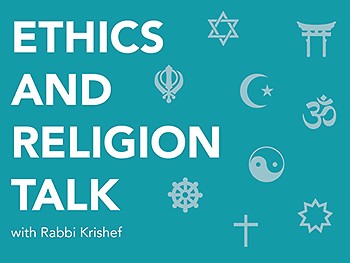Eight of our panelists responded to this question. I’m sharing the first four this week, and the rest in next week’s column.
Rev. Ray Lanning, a retired minister of the Reformed Presbyterian Church of North America, responds:
“Presbyterianism teaches that, ‘True believers may have the assurance of their salvation divers [diverse] ways shaken, diminished, and intermitted;’ that is, disturbed, decreased, or lost for a time. There are many causes, but the most important is, ‘by God’s withdrawing the light of His countenance, and suffering even such as fear Him to walk in darkness, and to have no light’ (Westminster Confession, Ch. XVIII, Sec. IV). Rare is the Christian who never knows dark times in his or her life.
“At such times we learn to trust God in the darkness, and look for light to dawn again. ‘Cause me. O LORD, to hear Thy lovingkindness in the morning; for in Thee do I trust’ (Psalm 143:8). I have walked through dark valleys in my own pilgrimage, especially in connection with my work as a pastor. I learned to go back to basics, retracing my first steps as a believer, reminding myself of why I chose to follow Christ as my Lord and Master, and reconnecting with the sources of my faith.
“The Book of Psalms has been my go-to resource, as it is for many others. David plumbs the depths of the human condition more deeply than any other writer. In particular, I recommend the book of praise used in our church, a metrical version of the Psalms published as The Psalter of 1912. In this version, the Hebrew Psalms have been translated into English verse and fitted with tunes for singing. ‘The singing of Psalms with grace in the heart’ is potent medicine for a troubled believer.”
Linda Knieriemen, Senior Pastor at First Presbyterian Church in Holland, responds:
“I have not experienced a ‘dark night of the soul’ as described by St. John of the Cross, Mother Theresa and others. I have had seasons when I felt farther rather than nearer to God. I have had seasons of theological shifts, when, intentionally or by necessity I’ve discarded theological beliefs which no longer resonated with my soul. I experienced such times as lonely, troubling, even guilt ridden. Conversations with a spiritual director have been valuable at such times.”
The Rev. Sandra Nikkel, head pastor of Conklin Reformed Church, responds:
“Oh yes! I have had more than one crisis of faith--two to be precise--one while facing divorce and the other one, facing the reality of abandonment from family and friends. It was during these times when I often wondered where God was. But because I had tasted the goodness of God and the love of God was a big part of my life, I continued to hang on to God. I kept putting one foot in front of the other looking for that light at the end of the tunnel and it eventually found me.
“What kept me going was the promise from God stated in 1 Corinthians 10:13 ‘No temptation has overtaken you except what is common to mankind. And God is faithful; he will not let you be tempted beyond what you can bear. But when you are tempted, he will also provide a way out so that you can endure it.’ So, even through my dark nights of the soul God's promises brought me hope and gave me strength to stay the course.
“God understands pain because he himself suffered on the cross and he promises never to leave us, never to abandon us. He will be with us until we get to the other side. So, hang in there and hang onto him!”
Father Kevin Niehoff, O.P., a Dominican priest who serves as Judicial Vicar, Diocese of Grand Rapids, responds:
“I went through a very dark period in my life. I was depressed, I thought my life had no value, and I contemplated taking my own life. I made my struggle prayer. One Holy Friday (the Friday before Easter), I was in my home parish Church for the prayer service that included the veneration of the cross. There was no one around me, yet I felt an arm around my shoulder, and I heard the voice of Jesus tell me that I was loved and there was nothing I could do that would change this. Jesus told me, ‘I died on that cross you see up there so you would not have to suffer like this.’
“Instantaneously, my perspective on life changed. I immediately stopped being depressed and looked at my life as having value beyond appraisal. I have never looked back! I continue to bring everything to God in prayer. I know I am loved and cherished beyond words.”
This column answers questions of Ethics and Religion by submitting them to a multi-faith panel of spiritual leaders in the Grand Rapids area. We’d love to hear about the ordinary ethical questions that come up in the course of your day as well as any questions of religion that you’ve wondered about. Tell us how you resolved an ethical dilemma and see how members of the Ethics and Religion Talk panel would have handled the same situation. Please send your questions to [email protected].
The Rapidian, a program of the 501(c)3 nonprofit Community Media Center, relies on the community’s support to help cover the cost of training reporters and publishing content.
We need your help.
If each of our readers and content creators who values this community platform help support its creation and maintenance, The Rapidian can continue to educate and facilitate a conversation around issues for years to come.
Please support The Rapidian and make a contribution today.
